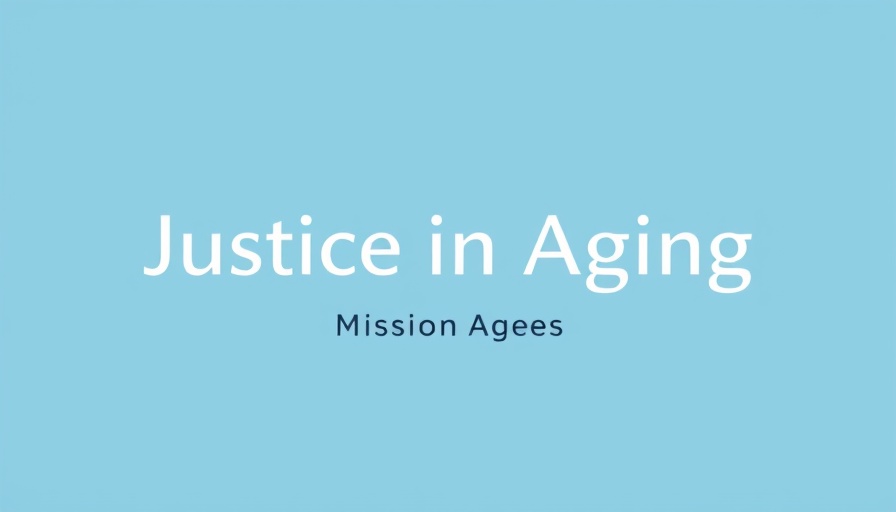
Protecting Vital Services for Seniors: The Push for Medicaid Defense
As budget negotiations heat up in Washington, seniors across the country are watching closely. The impending discussions around federal spending are raising alarms about potential deep cuts to pivotal programs like Medicaid and SNAP, which form the lifeblood for many older citizens. On Wednesday, March 26, Senate Democrats aim to bolster community support with a virtual town hall focused on defending healthcare rights amid these proposed budget cuts. This effort is crucial as healthcare accessibility directly impacts the day-to-day lives of seniors, allowing them to avoid crippling medical expenses.
Continuing Resolution: The Financial Landscape Ahead
Last week, Congress passed a continuing resolution (CR) to fund the federal government through fiscal year (FY) 2025, although this stopgap measure signals just a temporary reprieve for programs affecting seniors. While the CR continues funding for critical services, including Medicare enrollment assistance and housing support, it simultaneously highlights a worrying shortfall in homeless assistance programs — a gap that will affect nearly 18,500 households. This financial strain poses questions about the sustainability of resources for vulnerable populations, prompting advocates to urge Congress for more stable funding solutions.
The Shift in Social Security Services: New Restrictions on Access
Meanwhile, the Social Security Administration (SSA) is undergoing significant operational changes that will impact thousands. Starting March 31, SSA will curtail phone services for applicants and recipients of Social Security benefits, shifting to online and in-person identity verification. This policy raises concerns, particularly for older adults and individuals with disabilities, who may struggle with internet navigation or transportation. With staffing shortages at the SSA already causing delays, it's imperative to consider how such changes will affect timely access to benefits.
A Legislative Opportunity: Enhancing Medicare for Seniors
On a more hopeful note, recent bipartisanship efforts led by Senator Bernie Sanders and Representative Lloyd Doggett aim to improve Medicare coverage by adding dental, vision, and hearing services. Currently, the lack of dental benefits in Medicare leaves many seniors without important oral health care, exacerbating disparities. If passed, this legislation would not only enhance healthcare access but also reflect a commitment to couple health equity with comprehensive care for all seniors.
Looking Ahead: Challenges and Opportunities for Seniors
The current legislative landscape underscores the ongoing struggle for older adults to maintain access to essential services. As Congress gears up for critical negotiations, one thing is clear: advocacy is more vital than ever. Seniors and their families must engage in conversations surrounding these issues, making their voices heard in town halls and discussions. With ongoing challenges — from potential budget cuts to access problems at SSA — the future of senior care relies heavily on informed and active community participation.
Join the Conversation: How You Can Make an Impact
Your involvement is crucial! Participate in the upcoming virtual town hall on March 26 to stand up for the healthcare rights of older adults. Additionally, consider signing up for Justice in Aging's webinar on March 25 to delve deeper into the current threats to Medicaid. By staying informed and involved, you're not just advocating for yourself; you're standing up for seniors nationwide.
 Add Row
Add Row  Add
Add 




 Add Row
Add Row  Add
Add 

Write A Comment